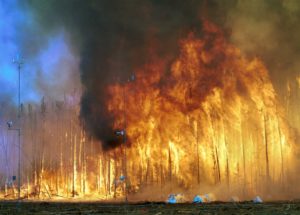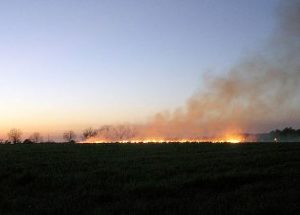Environment | 10 Interesting Facts
All Stories

Wetlands are unique ecosystems characterized by the presence of water, either permanently or seasonally, creating conditions that support a diverse array of plant and animal life. These habitats play a crucial role in maintaining ecological balance and providing valuable ecosystem…

Water pollution refers to the contamination of water bodies, such as rivers, lakes, oceans, and groundwater, by harmful substances or pollutants. These pollutants can originate from various sources, including industrial activities, agricultural runoff, urban runoff, improper waste disposal, and natural…

Water erosion is a natural process whereby water transports soil and rock particles from one location to another, shaping the Earth’s surface over time. It occurs through various mechanisms, including sheet erosion, rill erosion, gully erosion, and streambank erosion, each…

Water conservation is a crucial practice aimed at preserving and efficiently managing our planet’s freshwater resources. With water scarcity becoming a growing concern globally due to factors like population growth, climate change, and increasing demands from various sectors, effective conservation…

The water cycle, also known as the hydrological cycle, is a continuous and dynamic process that circulates water throughout the Earth’s ecosystems. It involves the movement of water between the atmosphere, land, and oceans through various processes such as evaporation,…

Wastewater treatment is the process of removing contaminants and pollutants from sewage or wastewater before it is released back into the environment or reused for various purposes. This essential process helps protect public health, safeguard water resources, and prevent environmental…

Waste refers to any material or substance that is discarded or unwanted, often as a byproduct of human activities. It can take various forms, including solid, liquid, and gaseous waste, and may originate from residential, commercial, industrial, agricultural, and institutional…

Waste management is the systematic handling, treatment, and disposal of waste materials generated by human activities to minimize environmental and health impacts. It encompasses a range of processes, including collection, transportation, sorting, recycling, treatment, and disposal of waste. Effective waste…

The danger of fires that happened in the forest will be explained on Facts about Forest Fires. Forest fires belong to wildfires, followed by hill fires, grassland fires, and bush fires. The forest fires can spread quickly, especially in the…

You should be more aware after reading one of these following facts about air pollution below since it will explain to you how dangerous pollution is. Air pollution is the introduction of particulates, biological molecules, or other harmful materials into…









